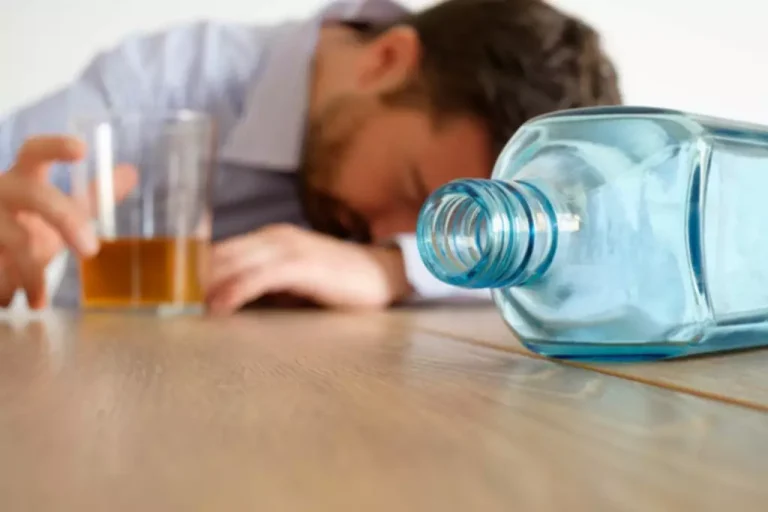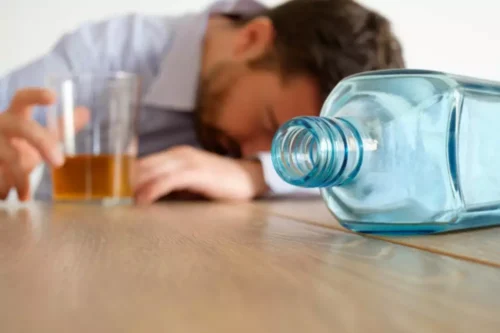
The National Institute on Drug Abuse explains that dependence does not necessarily constitute addiction. (6) For instance, in cases where a person suffering from a chronic medical condition relies on a prescription drug to feel normal, that is not addiction. Any drug with a similar mechanism of action that is chemically affecting the central nervous system can lead to tolerance, even if you jump from one to another. For instance, all drugs that lead to a dopamine rush (a euphoric “high” feeling) can lead to addiction, no matter how often you switch from one substance to another.
Sign Up & Get Our FREE Recovery Guide

Adolescents who grow up in homes where parents drink alcohol might take their first drink without their parents knowing about it. A curious teen may decide to take a family member’s prescription medications to see if they can get high. Young people often try drugs or alcohol when hanging out with peers, and research shows that substance use at a young age puts individuals at higher risk for addiction. Making sound decisions may be difficult because they may not have the critical thinking skills to understand the harmful consequences of risky behaviors. An individual may go through multiple attempts to stop using a substance before how to break the addiction cycle realizing that addiction is a factor. However, when addiction is diagnosed, it is possible to interrupt the cycle of addiction.
Relapse
In chronic conditions like diabetes or asthma, relapse is often expected as the individual and medical personnel work together to determine the treatment that makes it possible to manage the condition. Relapse can often happen during the withdrawal stage, when the person is experiencing unpleasant and difficult symptoms because their brain is craving the substance that they are trying to stop using. When a person becomes dependent on a substance, it eventually evolves into an addiction, which starts consuming every part of their life. On the other hand, an addiction-based dependence revolves around the person taking the drug to feel good and not treat a specific condition. In some instances, an addiction can begin with doctor prescribed medications for pain, which can later evolve into dependence (and then tolerance).
Psychological Dependence in Addiction
In this first stage, people often tell themselves that they’re just going to try it once to see what it feels like, especially if it’s a widely used drug like marijuana. The addiction cycle begins from the very first time a person uses a drug. At this stage, the addict’s health, financial status, and social life have been severely affected by their addiction. Dr. Deena is a doctor of psychology and licensed clinical social worker since 1993.

Dopamine is a type of neurotransmitter, something that is made by your body to send messages between nerve cells. These https://ecosoberhouse.com/ messages can be activated by a healthy, pleasurable experience. Bursts of dopamine signals can cause changes in neural connectivity that signal to your brain to repeat that activity, the one that is causing pleasure. However, some common withdrawal symptoms include agitation, depression, excitability, insomnia, loss of appetite, mental confusion, mood swings, nausea, night sweats and shakiness.
- The stages of addiction typically involve initiating substance use, developing dependence, and eventually becoming addicted.
- Addicts can suffer withdrawal symptoms at this stage when they are deprived of the substance.
- Even if the trigger led to a relapse, you’ve still gained a tool for your future recovery and sobriety.
- It involves stages like initial use, abuse, tolerance, dependence, and addiction, which can be difficult to overcome.
- When someone is psychologically dependent on something, they may feel like they can’t function without it, and it becomes a central part of their life.
- Ultimately, with the help of a treatment program and qualified healthcare providers, you can get to the next stage beyond the addiction cycle and break free of your drug dependence for good.
Social Influences
- If you or someone you know shows these signs of addiction or has tried and failed to quit using drugs or alcohol, there is still hope.
- Adding healthy lifestyles alongside your recovery will help maintain your sobriety and promote a more open mind during the treatment process.
- This first use of drugs or alcohol might be all it takes to form an addiction due to the rush of dopamine to certain neurotransmitters in the brain.
- This idea can lead to a belief that a person who is struggling with a substance or alcohol addiction may have had one drink or tried an illicit drug one time and immediately became addicted.
- This can cause a person who’d otherwise enjoy casual drinking or avoid substance abuse to become addicted to alcohol or drugs.
- Repeatedly recognized as Newsweek’s best treatment center in California, they offer highly personalized, non-12-Step care using evidence-based and holistic approaches.
Cultivating new ways to handle stress and regulate one’s emotions is essential for long-term recovery. Relapse is not inevitable, but it is common in the stages of addiction. Since addiction is a chronic condition, various influences, such as stress, environmental cues, or social pressures, can trigger a relapse. It’s okay if it happens, but it’s also something you can proactively work to prevent.
What are the Stages of Addiction?

Remember, breaking the cycle of addiction is possible, and with determination and support, you can stop addiction from controlling your life and embrace a healthier, happier future. Gateway drugs play a significant role in the development of addiction. Gateway drugs are substances that, when used, can open the door to more serious and Alcoholics Anonymous harmful drugs.

Identifying Initial Use Signs
- They can even help you get a proper diagnosis for health issues or assist you in creating a strong support network.
- Staying clean or sober is a significant struggle for individuals who undergo substance abuse treatment.
Sobriety is a crucial step to overcoming addiction, and research shows that when abstinence is combined with treatment, therapy, and community support, it is more successful. Physical dependence occurs when the body has adjusted to the substance so much that the person needs it to feel normal. Without it, withdrawal symptoms such as depression, anxiety, irritability, restlessness, or insomnia may occur. The person may use the substance primarily to avoid withdrawal symptoms rather than to enjoy its euphoric effects, reinforcing the cycle of misuse. Addiction is a chronic condition that changes the structure and function of the brain, causing psychological and physical dependence. It typically progresses through various stages, each offering the opportunity for intervention and recovery.
How Does Alcohol and Drug Addiction Affect the Brain?
For many addicts, the cycle of addiction repeats itself multiple times. That’s because they often don’t have a clear understanding that they have an addiction and how addictions tend to progress. The bottom line is that in many cases, addiction has seemingly innocent beginnings, and it can be hard to pinpoint the moment when it actually becomes a problem. However, family history, living environment, and mental health can all be contributing factors to consider. Every addiction starts the same way, with the person trying the substance or the addictive activity for the first time. The vast majority of addicted people go through a set of stages that are quite similar, and thus the term addiction cycle is used to describe the process.
Leave a Reply